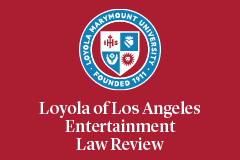Abstract
Using the U.S. Supreme Court’s 2014 decision in Air Wisconsin Airlines Corp. v. Hoeper as an analytical springboard, this article examines the vast burdens placed on speakers in four realms of First Amendment law to correctly know their audiences, in advance of communication, if they want to receive constitutional protection. Specifically, the article asserts that speakers are freighted with accurately understanding both the meaning and the value audiences will ascribe to their messages, ex ante, in the areas of obscenity, intentional infliction of emotional distress, student speech, and true threats. A speaker’s inability to effectively predict a recipient’s reaction to his message could result in a loss of speech rights and, in turn, lead to either criminal punishment or civil liability. Dangerous disconnects and chasms between speakers and audiences can arise, negating free expression when a message’s meaning or its value is lost in translation. Ultimately, speakers should not be forced to engage in complicated guesswork and multiple layers of abstraction in order to safely exercise their First Amendment rights.
Recommended Citation
Clay Calvert and Matthew D. Bunker,
Know Your Audience: Risky Speech At The Intersection Of Meaning And Value In First Amendment Jurisprudence,
35 Loy. L.A. Ent. L. Rev. 141
(2015).
Available at: https://digitalcommons.lmu.edu/elr/vol35/iss2/1


